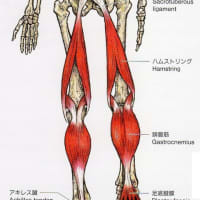http://www.perfectyourenglish.com/english-lesson.htm
English usage
英語用法 - 日本語WordNet
modern English usage
現代英語の用法. - 研究社 新英和中辞典
acceptable English usage
許容できる英語の使用 - 日本語WordNet
English Lesson of the Day
We are constantly adding new English lessons to our site. You can find the most recent lessons on this page.
New English Grammar Lessons
Difference between such and very
程度がはなはだしいことを表す「very」。このほかにも「so」や「such」が使われ、veryと同じ意味を表します。
ただし「so」は[形容詞]や[副詞]の前に、「such」は[形容詞 + 名詞]の前につくという文法的用法に違いがあります。
So as a conjunction
Using coordinating conjunctions
The conjunctions and, or and but
The conjunction nor
The conjunction yet
To as a preposition and an infinitive marker
Special structures used for comparing
Differences between simple past and present perfect tense
Correct use of the past perfect tense
10 English Grammar Tips
Past tense forms with present or future meaning
15 grammar terms you must know
Make your sentences clearer with parallel structures
Present perfect tense with definite time adverbs
Verbs that can be followed by infinitives
English speaking
Idioms and expressions with look
Idioms and expressions with mind
Idioms and expressions with lose
Idioms with leave
Idioms with wish
Phrasal verbs with go
What are phrasal verbs
Important phrasal verbs
Three word phrasal verbs separable phrasal verbs Asking for and giving directions
Talking about age, height and weight
Business Writing
How to write a letter of congratulation?
How to write a letter of greeting?
Job reference thank-you letter
How to format a formal letter?
How important are cover letters?
Cover letter writing and formatting tips
Are cover letters necessary?
Sample apology letter
Cover letter sample
Job acceptance letter sample
Sample employment letter with salary requirements
5 tips for effective business writing
Writing business letters
Compliment letter sample
Application letter sample
How to write an application letter?
How to write an advice letter?
Formal letter - Sample complaint letter
How to write a complaint letter
Different types of formal letters
Cover letter sample
Formal letter - Interview thank you letter sample
Formal letter - sample resignation letter
How to write an acceptance letter
How to write an effective cover letter
How to write a letter of enquiry
Formal letter writing basics
Standard phrases used in formal letters
Formal letter sample 3
Formal letter sample 4
Inquiry letter writing tips with sample letter
Business Letter writing Tips
How to write a business letter?
How to make a business English presentation
Standard business questions
Grammar worksheets
Past perfect tense worksheet.htm Personal pronouns worksheet
Relative pronouns worksheet 2
Relative pronouns worksheet 3
Phrasal verbs worksheet
Adjectives worksheet
Present perfect tense worksheet 2
Present perfect or past tense worksheet
Simple present tense worksheet 2 Time adverbs worksheet Whether or if worksheet
Simple past or present perfect tense worksheet
Tenses worksheet
Adverbs worksheet
Verbs worksheet
English Vocabulary: Common Differences
Difference between for and to New!
Look forward to and looking forward to New!
Difference between from somebody's point of view and in somebody's opinion
Difference between play and game
IELTS Practice
IELTS sample essay: should working couples share housework?
IELTS Model Essay
Richness is an important factor in helping people. To what extent do you agree or disagree?
IELTS essay introductions
How to make your IELTS essay more formal or academic?
How to prepare for the IELTS speaking test
English Idioms
Idioms and expressions with nose
Idioms and expressions with heart
Idioms and expressions with hand
Common Idioms and Phrases with Keep
Common Idioms and Phrases with Take
Idioms you must know
Sports idioms
English Writing
How to write an essay?
How to write a descriptive essay?
Phrases that you can omit
How to write concise sentences?
24 words or phrases you must avoid
How to vary and improve your sentences - part I
How to vary and improve your sentences - part II
Sentence connectors expressing a contrast
Discourse markers: nonetheless, however, even so, all the same, of course, if, still, certainly
1.Can you tell the difference between an American and a Canadian?
あなたはアメリカ人とカナダ人の違いが分かりますか。
http://www.ebenkyo.com/17145_ebenkyo.html
English-Japanese 例文 (10件)
1.Nothing is so pleasant as taking a walk along the seaside on a fine day.
晴れた日に海岸を散歩することほど気持ちのよいものはない。
2.We got up at dawn so as to avoid a traffic jam.
私達は渋滞を避けるために夜明けとともに起床した。
3.I left home early so as to get a good seat.
良い席を取るために私は早く家をでた。
4.He learning French so as to get a better salary.
彼はもっといい給料をもらうためにフランス語を習っている。
5.We picked apples so as to make a pie.
私達はアップルパイを作るためにリンゴをもいだ。
6.Nothing is so pleasant as going on a picnic on a fine day.
晴れた日にはピクニックに行くほど楽しいことはない。
7.He was so stupid as to tell a lie that might easily be found out.
彼はまぬけにもすぐばれそうなうそをついた。
8.She is not so much an actress as a singer.
彼女は女優というよりはむしろ歌手だ。
9.They listened attentively so as not to miss a single word.
彼らは1語も聞きもらすまいと傾聴した。
10.He was so fortunate as it find a good job.
彼は幸運にも良い仕事が見つかった。
Abbreviations
http://www.abbreviations.com/
略号
Acronyms and initialisms New!
About
Above and over
According to
Across
Adverbs with two forms
Affect and effect
Ago
All
All and every
Along
A lot of, lots of, plenty of, a large amount of, a great deal of
Already and all ready New!
Also
Alternately
Amount and Number: differences New!
And
Another
Any
Appear
Around
As, because, since and for
As if and as though
As and though
Ask and ask for
As well as
As, when and while
Back and Again
Because
Been
Before
Begin and Start
Below and under
Beside
Besides
Between and among
Big, large and great
Both
Bring and take
But
By and with
English that is currently in usage
時事に関する英語 - EDR日英対訳辞書
He has an eye for good English usage.
彼は正しい英語の使い方を良く知っている。 - Tanaka Corpus
This is a book on modern English usage.
これは現代英語の慣用法についての本です。 - Tanaka Corpus
We need to know both grammar and usage to write good English.
よい英語を書くためには文法と慣用法の両方を知る必要がある. - 研究社 新英和中辞典
This expression is sanctioned by current English usage.
この表現は現代英語の慣用法では正しいとされて
いる. - 研究社 新和英中辞典
I follow the English usage on system.
(英語には英国ふうと米国ふうとあるが)僕は主義として英国ふうに従う - 斎藤和英大辞典
English lexicographer who wrote a well-known book on English usage (1858-1933 )
英国の辞書編集者で、英語の使用法についての有名な本を書いた(1858年-1933年) - 日本語WordNet
As an Englishman, he is particularly sensitive to the differences between English and American usage.
英国人なので、彼はとりわけイギリス語法とアメリカ語法の違いに敏感である。 - Tanaka Corpus
Mr Jones is very sensitive to the nuances of English and American usage.
ジョーンズ先生は英米の語法の微妙な違いにとても敏感である。 - Tanaka Corpus
The symbolic emphasis macro is generally a boldface macro in either the symbolic sense or the traditional English usage.
シンボリック体強調マクロはシンボリックの意味でも伝統的な英語の使いかたにおいても、通常はボールドマクロとなっています。 - JM
http://friends-esl.com/english_nuance/
Question
「~をする」という意味の make と do の目的語に違いはあるのでしょうか? make a mistake を do a mistake とするのは間違いでしょうか?
Answer
make a mistake を do a mistake とすることはできません。
doは「何かの活動を行う」という場合、makeは「何かを生じさせる」「生み出す」という場合にそれぞれ用います。a mistake は「活動」ではなく、「生じさせる(生み出す)対象」ですから、make を用います。
◆活動を行う、という場合は do を用いる:
do the dishes
do research
do aerobics
do exercise
do one's hair
do homework
do a lot of reading
皿洗い、研究、エアロビクス、運動、髪をとくこと、宿題、読書、は全て活動と見なすことができます。仮に do homework を make homework にすると「宿題をする」ではなく「宿題を作る」ことになってしまいます。
◆何かを生じさせる、という場合は make を用いる:
make a promise(約束する←約束を生じさせる)
make progress(進歩する←進歩を生じさせる)
make a proposal(提案をする←提案を生み出す)
Question
アメリカ製は、made in the USA と made in USA と2通りの表示がみられますが、どちらが正式でしょうか。それとも両者でニュアンスが異なるのでしょうか。文法的にはどちらも正しいのでしょうか。
Answer
両者の間にニュアンス上の違いはありません。冠詞のある the USA の方がより文法的に忠実な言い方です。
アメリカ合衆国の正式な言い方は the United States of America ですが、一般には the United States や the States と言う(書く)ことが多く、その略語である the US (the U.S.)や the USA (the U.S.A)もよく用いられます。冠詞を省いた USA(U.S.A)は文法的厳密さより簡潔さがより求められる製品の表示レベルなどに見られます。
Question
I will return his call. の日本語訳が「彼に折り返し電話しておきます。」 がすっきりしません。 原因はhis call です。I will return him a call. とはいわないのでしょうか。 または I will call him back. とはいわないのでしょうか。
Answer
原因は his call(彼がかけてきた電話) ではなく return という動詞の意味の取り方だと思います。
return には 「~を受けてそれと同じものを相手に(送り)返す」という意味があります。
以下はその例です。
return his call :彼の電話に対して電話を彼にかけ返す
return his greeting :彼の挨拶に対してこちらからも挨拶を返す
return a ball :相手のボールを打ち返す
return fire :敵の発砲を受けてこちらも発砲する
I'll return his call.は意訳すると「彼に折り返し電話をしておきます」となりますが、この文の忠実な意味は「私は、彼がかけてきた電話に対して、電話をかけ返します」ということです。これを I'll call him back. と言うことも可能です。
return は「~を受けてそれと同じものを相手に(送り)返す」という意味では二重目的語が取れません。ですから、I'll return him a call. とは言えません。但し、「<人>に<借りているもの>を返す」という意味では以下のように二重目的語(名詞を2つ)が取れます:
Don't forget to return me my books. 「貸した本、必ず返して下さいね」
He never returned me my 5,000 yen. 「彼は結局私が貸した5千円を返さなかった」
Question
Water (1.is made 2.consists 3.composes 4.contain) of hydorogen and oxygen. という問題が「基礎英文法問題精講」にあり、解答は2のconsistsでした。
is made の場合はbe made of の後は「材料」であり、酸素・水素は「材料」ではないという解釈でよろしいのでしょうか?またbe made from「原料」・be made up of 「構成分子」の「原料」「材料」「構成分子」の区別を教えてください。
Answer
S is made of ... は「 S は...でできている」という意味で、「...」部分には単一のものを置くのが一般的です。また、「...」が形を変えずにそのままの状態で S を形成している、つまり「S is ...」という意味をもっています:
This bracelet is made of silver.( = This bracelet is silver.)
このブレスレットは銀でできている( = このブレスレットは銀だ)
一方、S is made from ...は「 S は...から作られている」という意味で、「...に加工が施され S という別のものが作られる」という意味です:
Butter is made from milk.(= Milk is used to make something else -- butter.)
バターは牛乳から作られる( = 牛乳が使われて別のものであるバターが作られる)
S is made up of ... と S consists of ... は同じ意味で、「 S は ...によって構成されている/...から成る」という意味です。これは「 S は ...が集まって出来上がっている」という意味なので、「...」部分には S を構成する複数の要素が示されます:
The committee consists of 20 lawyers.
The committee is made up of 20 lawyers.
委員会は20人の弁護士から構成されている。
Water consists of oxygen and hydrogen.
Water is made up of oxygen and hydrogen.
水は酸素と水素からできている。
Question
次の英文の意味の差異を教えてください。
I know a boy who comes from England.
I know a boy who came from England.
Answer
つまり、次の違いは何か?という質問ですね。
He comes from England. (= He is from England.)
He came from England.
は He is from England.と同様、「彼はイングランド出身者です」つまり、「イングランドで(生まれ)育った人だ」という意味。 一方、は単に「イングランドから来ました」と言っているだけで、その人がイングランドで生まれ育った人かどうかまではわからない。(イングランドの出身者ではないけれども)イングランドの会社に勤めている人がビジネスでイングランドから来たのだ、と言っているのかもしれません。
(注) He comes from England. (現在形の come from)は He came from England. の意味で用いられる場合もあります。 従って、「~の出身です」「~で(生まれ)育った」といいたい場合は、He is from England. とするのが無難です。
Question
the last ... to V は「決してVしない...」という意味になると、ある参考書に書かれていました。この表現は文字通りの意味である「Vする最後の...」という意味になることはないのでしょうか?
Answer
「Vする最後の~」という文字通りの意味でも使われます。以下のようにです:
The last person to leave the room should switch off the lights.
(最後に部屋を出る人は電気を消しておいて下さい)
He was the last to arrive.
(彼は一番最後にやって来た)
* last person の person が省略
Question
What makes a good job? の日本語訳について教えていただけますようお願い申し上げます。
又答えが例えば I want to work out math problems. ではおかしくないかを教えていただけますようお願い申し上げます。
Answer
make には「…になる」という意味があります。「…になる資質[特徴、条件]が備わっている」という意味で用います。
He will make a good teacher.
「彼はきっと良い先生になりますよ」
What makes a good job?
「何が良い仕事になるのですか?」
→「良い仕事の条件(中身)とは何ですか?」
「良い仕事の条件とは何?」 「いい仕事って何?」と聞かれているわけですから、I want to work out math problems.(私は数学の問題を解きたいのです)では適切な応答になりません。
"What makes a good job?"
"Something you like to do and get paid well."
「いい仕事ってどんな仕事ですか?」
「好きでやれて、しかも儲かるものです」
Question
ある会話文の中で、「AからBまで」を英語で表現する際に、曜日を表現する場合、from Monday through Fridayとなり、時間を表現する場合、from 10 to 8となっていました。どうして、曜日は「from A through B」で、時間は「from A to B」となるのでしょうか。 「through」と「to」の違いについて教えてください。
Answer
「AからBまで(の間ずっと)」という場合、時刻でも、曜日でも、年でも全て 「 from A to B 」とすることができます。
We are open from 9 a.m. to 6 p.m.
We are open from Monday to Friday.
I lived in U.K. from 1985 to 1992.
from A through B を用いるのは主に米語で、これは時刻以外で用いられます。また from は省略されることもあります。
We are open (from) Monday through Friday.
I lived in U.K. from 1985 through 1992.
「2時から6時まで」を from 2 to 6 p.m. とし、from 2 through 6 p.m. とはしない理由は、2 p.m. や 6 p.m. は through(~を通り抜ける)するだけの時間的な幅がない瞬間的な一点を指す語だからでしょう。through には「幅のあるものを通り抜ける」というイメージがあります。
Question
awful, dreadful, terrible はニュアンスが違うのでしょうか? 文脈によっては置き換えられない場合もあるのでしょうか?
Answer
いずれも,「ひどい」(very bad or unpleasant)という意味と「かなりの程度の」(great)という意味を共通してもっており,たいてい置き換えが可能です。
但し,dreadful には上記の意味以外に「恐ろしい」という意味があります。
<1> 私はひどいミスをしました。(= very bad)
I made an awful [a dreadful, a terrible] mistake.
<2> 食事はまずく,サービスもひどいものでした。(= very bad)
The food was bad and the service was awful [dreadful, terrible].
<3> 彼女はとてもうっとうしい存在です。(= great)
She's an awful [a dreadful, a terrible] nuisance.
<4> 恐ろしい病気
a dreadful disease
<4>で,an awful disease,a terrible disease としても,dreadful と意味上大違はありませんが,「恐ろしい」という意味合いは薄れます。
Question
「I went to Kyoto by train.」 と 「I took a train to Kyoto.」の違いは何ですか?「get on」と「take」の違いなどは辞書や参考書にも載っているのですが、この違いは書いてありませんでした。「take」は「利用する」の意味ということはわかりましたが、ニ文の違いまではよくわかりません。
Answer
前者は「京都へは電車で行った」,後者は「京都まで電車に乗った(を使った)」。前者の方が若干,「電車」という交通手段を強調しています。
by ...や on foot を用いた言い方は「手段」を強調します:
I flew to Fukuoka. (飛行機で福岡に行った)
I went to Fukuoka by plane. (福岡へは飛行機で行った)
I drove to Fukuoka. (車で福岡へ行った)
I went to Fukuoka by car. (福岡へは車で行った)
I walked to the station. (歩いて駅に行った)
I went to the station on foot. (駅へは徒歩で行った)
Question
衣服と言うとき、clothes と訳すと単数扱いになるのでしょうか。 clothes は衣服と言うとき、最適な訳なのでしょうか。
Answer
clothes(衣服)はいくつかの cloth(生地)からできたもの,と考えればよいでしょう。つまり,この語は複数形であり,一着の服でも複数の服でも clothes とします。主語に置く場合は複数形の動詞で受けます:
He didn't have any clothes on.
(彼は服を身につけていなかった)
Clothes were lying all over the room.
(衣服が部屋のあちこちに散らかっていた)
衣服を指すことばには,他に clothing(不可算名詞)があります。これは,formal(正式)な語です:
food, clothing, and shelter (衣食住)
the clothing industry (服飾産業)
clothes は複数形なので,a piece of, an item of 等を用いて「一着」「二着」と表現することはできませんが,clothing は不可算名詞なのでこれが可能です:
an item [ an article, a piece ] of clothing
(1点の衣服)
three items [ three articles, three pieces] of clothing
(3点の衣服)
Question
be reluctant to 動詞 は「~するのに気が進まない」とか「しぶしぶ~する」と辞書等に訳されていますが、これは例えば過去形で He was reluctant to help me. と言う場合、「しぶしぶ手助けをした」のか、「手助けを渋って(手助けを)しなかった」のか、つまり過去の事実として、「した」のか「しなかった」のかどちらの意味になるのでしょうか?
Answer
過去形で「S was [were] reluctant to V原形」という場合,前後の文脈がなければ断定はできませんが,おそらく「渋ったものの最終的には~した」のであろうと聞き手は推測します。このことは,Longman Dictionary of Contemporary English の reluctant の用例でも指摘されています:
They were reluctant to help. (but probably did help)
「彼らは手助けすることを渋った」
Question
日本語でよく 「ことにしておく」 という表現があります。例えば 「見なかったことにしておく」 などです。私は、これを、I decided to forget seeing this. と訳しましたが正しい訳となっているのでしょうか。
その他、「なかったことにする」 などはどう訳せば良いのでしょうか。
Answer
「Vすることにする」 は主語の意思を表しているので 「I'll V原形」 とすれば十分で,I've decided to V は大げさです。また forget Ving (Vしたことを忘れる)という表現は肯定形で用いることはまずありません。
「私はVしなかったことにします」 は 「I'll pretend I never V過去形.」,「Vしなかったことにして下さい」 なら 「Just forget you ever V過去形.」 とすればよいでしょう。
例1:これは見なかったことにします。
I'll pretend I never saw this.
例2:これは聞かなかったことにします。
I'll pretend I never heard this.
例3:この話は聞かなかったことにして下さい。
Just forget you ever heard this.
例1と2を 「I'll forget I ever saw [heard] this.」 ともできそうですが,I'll forget は「忘れるつもり」(意思)というより 「忘れるだろうねきっと」(予想)に聞こえるのでよくありません。
また、「この話はなかったことにしましょう」 という場合は、以下のように言うことができます:
Let's forget the [this] whole thing.
Question
「on one's own」と「by oneself」と「alone」の違いが分かりません。例えば、「来月、ニューヨークに行くんです。」という言葉に対して、「1人で行くんですか?」と聞きたい場合、どれを使うのが正しいのでしょうか? それぞれのニュアンスの違いを教えていただきたいです。
Answer
on one's own は「自分自身に依存して(on)いる」ので「他人の力に頼らずに一人で」「独力で」というニュアンスです:
・How do you like living on your own?
(一人暮らしの感想は?)
・I can't carry it on my own. It's too heavy.
(重すぎて私一人では運べません)
alone は without a companion,つまり「同伴者なしに」という意味です:
・I was alone in the house. (家の中には私しかいなかった)
・She lives alone. (彼女は一人ぼっちで暮らしている)
by oneself は, alone(同伴者なしに)という意味でも,on one's own(独力で)という意味でも用いられます:
・You can't play tennis by yourself.
(同伴者なしに,テニスはできない)
・Did you draw this picture by yourself?
(独力でその絵を描いたの?)
「そこへは一人で行くのですか?」は「(同伴者なしに)一人で」という意味ですから,
・Are you going there alone?
・Are you going there by yourself?
とします。
Question
Don't mind. についてですが、手持ちの辞書(新グローバル英和辞典)を見ていたら Don't mind.とはいわず Never mind.というと書いてありながら、別の項では Don't mind.と書いて「気にするんじゃない」との訳がありました。
またネイティヴの人が書かれた別の本ではやはり Don't mind. とは言わずに Never mind. といいましょうとあり、最近放送されたTV番組の英語のワンポイントレッスンのようなコーナーでは「人を励ますときに使う言葉として日本語でも使われる Don't mind. があります。」といっていました。
いったい Don't mind. はどんな時に使われるのでしょうか。 Don't mind. との違いはなにでしょうか。お教えください。
Answer
Don't mind. はまず使われない表現です。相手を慰めるにせよ励ますにせよ「気にしないで」は,Never mind.と言い,Don't mind. とは言いません。
Don't で始めるなら,Don't worry (about it). とか Don't let it bother you. などすべきでしょう。
○ Never mind. I was just teasing you.
× Don't mind. I was just teasing you.
「気にすんなよ。ちょっとからかっただけだろ」
"I didn't get the job."
"Oh, well, never mind, there'll be others."
「仕事,不採用だったよ」
「まあ気にするな。仕事なんて他にもあるから」
(Larousse English Dictionaryより引用)
Question
「あなたは英語を話せますか?」という場合、Can you speak English? より Do you speak English? の方がよい、と聞きました。 Can you ...? のどこが問題なのかがわかりません。是非教えて下さい。
Answer
話す相手によって使い分ける必要があります。
Can you speak English? (英語が話せますか?)
Do you speak English? (英語を話しますか?)
は,「あなたは英語を話す能力があるか?」と能力を尋ねており,は「あなたは英語を話す人か?」という客観的事実を尋ねています。
英語学習者に対し,「あなたは英語がしゃべれますか?」と聞く場合は になります。ヨーロッパを旅行している時に知り合ったヨーロッパ人に対し,「あなたは英語を話しますか?」という場合は になります。
<c> I can't speak English. (英語は話せません)
<d> I don't speak English. (英語は話しません)
<c>は,「話そうとしても話せない」という意味であるのに対し,<d>は「話さない人間だ」という意味で,そもそも英語を話す必要性も感じていないしその努力もしていません。
Can you ...? は「それを行う必要性のない人」に対して用いると,「できようができまいが大きなお世話だ」と思われてしまうかもしれません。
Question
「ごみ」の使い分けについて。garbage、garbage can、trash、trash canの 4つの言葉についてです。それぞれどんな意味でしょうか? 特に garbage と trash の違いについて教えて下さい。
Answer
・garbage … 台所ゴミ(生ゴミ)が意味の中心。他の種類のゴミも指す。例えば「燃えないゴミ」は non-combustible garbage という表現が可能。
・trash … ゴミ一般を表す。
生ゴミとそれ以外の固形ゴミを区別して言う場合は前者を garbage, 後者を trash と言います。例えば,生ゴミ処理機は garbage disposal といい, 固形ごみ圧縮機は trash compactor と言います。
ゴミ箱に関する区別は以下の通りです。
・litter box … 市街地などに置かれているゴミ入れ
・trash can [box] … 駅に置かれているゴミ入れ
・garbage can … 金属やプラスティックの容器で主に生ゴミを入れて外に置いておくもの。garbage truck(ゴミ収集車)
が中身を回収する。
・wastebasket [wastepaper basket] … 部屋や教室などに置かれているふたのないゴミ箱
Question
文法の参考書に目的を表す構文として so that ... may というのが載っていたのですが、これは so that ... can とどう違うのでしょうか?
Answer
同じ意味です。どちらも「SがVできるように」という意味で,現代英語では主として「so that S can V原形」の方を用います。「so that S may V原形」は少し古めかしくかたい響きがあります。
我々は,人々の寿命が延びるように,病気の治療に努力しています。
We struggle to cure diseases so that people can live longer.
We struggle to cure diseases so that people may live longer.
* so that S can ... では,thatがよく省略されます。
http://www.linkage-club.co.jp/Q&A/Expressions/hyogen2.html
English usage
英語用法 - 日本語WordNet
modern English usage
現代英語の用法. - 研究社 新英和中辞典
acceptable English usage
許容できる英語の使用 - 日本語WordNet
English Lesson of the Day
We are constantly adding new English lessons to our site. You can find the most recent lessons on this page.
New English Grammar Lessons
Difference between such and very
程度がはなはだしいことを表す「very」。このほかにも「so」や「such」が使われ、veryと同じ意味を表します。
ただし「so」は[形容詞]や[副詞]の前に、「such」は[形容詞 + 名詞]の前につくという文法的用法に違いがあります。
So as a conjunction
Using coordinating conjunctions
The conjunctions and, or and but
The conjunction nor
The conjunction yet
To as a preposition and an infinitive marker
Special structures used for comparing
Differences between simple past and present perfect tense
Correct use of the past perfect tense
10 English Grammar Tips
Past tense forms with present or future meaning
15 grammar terms you must know
Make your sentences clearer with parallel structures
Present perfect tense with definite time adverbs
Verbs that can be followed by infinitives
English speaking
Idioms and expressions with look
Idioms and expressions with mind
Idioms and expressions with lose
Idioms with leave
Idioms with wish
Phrasal verbs with go
What are phrasal verbs
Important phrasal verbs
Three word phrasal verbs separable phrasal verbs Asking for and giving directions
Talking about age, height and weight
Business Writing
How to write a letter of congratulation?
How to write a letter of greeting?
Job reference thank-you letter
How to format a formal letter?
How important are cover letters?
Cover letter writing and formatting tips
Are cover letters necessary?
Sample apology letter
Cover letter sample
Job acceptance letter sample
Sample employment letter with salary requirements
5 tips for effective business writing
Writing business letters
Compliment letter sample
Application letter sample
How to write an application letter?
How to write an advice letter?
Formal letter - Sample complaint letter
How to write a complaint letter
Different types of formal letters
Cover letter sample
Formal letter - Interview thank you letter sample
Formal letter - sample resignation letter
How to write an acceptance letter
How to write an effective cover letter
How to write a letter of enquiry
Formal letter writing basics
Standard phrases used in formal letters
Formal letter sample 3
Formal letter sample 4
Inquiry letter writing tips with sample letter
Business Letter writing Tips
How to write a business letter?
How to make a business English presentation
Standard business questions
Grammar worksheets
Past perfect tense worksheet.htm Personal pronouns worksheet
Relative pronouns worksheet 2
Relative pronouns worksheet 3
Phrasal verbs worksheet
Adjectives worksheet
Present perfect tense worksheet 2
Present perfect or past tense worksheet
Simple present tense worksheet 2 Time adverbs worksheet Whether or if worksheet
Simple past or present perfect tense worksheet
Tenses worksheet
Adverbs worksheet
Verbs worksheet
English Vocabulary: Common Differences
Difference between for and to New!
Look forward to and looking forward to New!
Difference between from somebody's point of view and in somebody's opinion
Difference between play and game
IELTS Practice
IELTS sample essay: should working couples share housework?
IELTS Model Essay
Richness is an important factor in helping people. To what extent do you agree or disagree?
IELTS essay introductions
How to make your IELTS essay more formal or academic?
How to prepare for the IELTS speaking test
English Idioms
Idioms and expressions with nose
Idioms and expressions with heart
Idioms and expressions with hand
Common Idioms and Phrases with Keep
Common Idioms and Phrases with Take
Idioms you must know
Sports idioms
English Writing
How to write an essay?
How to write a descriptive essay?
Phrases that you can omit
How to write concise sentences?
24 words or phrases you must avoid
How to vary and improve your sentences - part I
How to vary and improve your sentences - part II
Sentence connectors expressing a contrast
Discourse markers: nonetheless, however, even so, all the same, of course, if, still, certainly
1.Can you tell the difference between an American and a Canadian?
あなたはアメリカ人とカナダ人の違いが分かりますか。
http://www.ebenkyo.com/17145_ebenkyo.html
English-Japanese 例文 (10件)
1.Nothing is so pleasant as taking a walk along the seaside on a fine day.
晴れた日に海岸を散歩することほど気持ちのよいものはない。
2.We got up at dawn so as to avoid a traffic jam.
私達は渋滞を避けるために夜明けとともに起床した。
3.I left home early so as to get a good seat.
良い席を取るために私は早く家をでた。
4.He learning French so as to get a better salary.
彼はもっといい給料をもらうためにフランス語を習っている。
5.We picked apples so as to make a pie.
私達はアップルパイを作るためにリンゴをもいだ。
6.Nothing is so pleasant as going on a picnic on a fine day.
晴れた日にはピクニックに行くほど楽しいことはない。
7.He was so stupid as to tell a lie that might easily be found out.
彼はまぬけにもすぐばれそうなうそをついた。
8.She is not so much an actress as a singer.
彼女は女優というよりはむしろ歌手だ。
9.They listened attentively so as not to miss a single word.
彼らは1語も聞きもらすまいと傾聴した。
10.He was so fortunate as it find a good job.
彼は幸運にも良い仕事が見つかった。
Abbreviations
http://www.abbreviations.com/
略号
Acronyms and initialisms New!
About
Above and over
According to
Across
Adverbs with two forms
Affect and effect
Ago
All
All and every
Along
A lot of, lots of, plenty of, a large amount of, a great deal of
Already and all ready New!
Also
Alternately
Amount and Number: differences New!
And
Another
Any
Appear
Around
As, because, since and for
As if and as though
As and though
Ask and ask for
As well as
As, when and while
Back and Again
Because
Been
Before
Begin and Start
Below and under
Beside
Besides
Between and among
Big, large and great
Both
Bring and take
But
By and with
English that is currently in usage
時事に関する英語 - EDR日英対訳辞書
He has an eye for good English usage.
彼は正しい英語の使い方を良く知っている。 - Tanaka Corpus
This is a book on modern English usage.
これは現代英語の慣用法についての本です。 - Tanaka Corpus
We need to know both grammar and usage to write good English.
よい英語を書くためには文法と慣用法の両方を知る必要がある. - 研究社 新英和中辞典
This expression is sanctioned by current English usage.
この表現は現代英語の慣用法では正しいとされて
いる. - 研究社 新和英中辞典
I follow the English usage on system.
(英語には英国ふうと米国ふうとあるが)僕は主義として英国ふうに従う - 斎藤和英大辞典
English lexicographer who wrote a well-known book on English usage (1858-1933 )
英国の辞書編集者で、英語の使用法についての有名な本を書いた(1858年-1933年) - 日本語WordNet
As an Englishman, he is particularly sensitive to the differences between English and American usage.
英国人なので、彼はとりわけイギリス語法とアメリカ語法の違いに敏感である。 - Tanaka Corpus
Mr Jones is very sensitive to the nuances of English and American usage.
ジョーンズ先生は英米の語法の微妙な違いにとても敏感である。 - Tanaka Corpus
The symbolic emphasis macro is generally a boldface macro in either the symbolic sense or the traditional English usage.
シンボリック体強調マクロはシンボリックの意味でも伝統的な英語の使いかたにおいても、通常はボールドマクロとなっています。 - JM
http://friends-esl.com/english_nuance/
Question
「~をする」という意味の make と do の目的語に違いはあるのでしょうか? make a mistake を do a mistake とするのは間違いでしょうか?
Answer
make a mistake を do a mistake とすることはできません。
doは「何かの活動を行う」という場合、makeは「何かを生じさせる」「生み出す」という場合にそれぞれ用います。a mistake は「活動」ではなく、「生じさせる(生み出す)対象」ですから、make を用います。
◆活動を行う、という場合は do を用いる:
do the dishes
do research
do aerobics
do exercise
do one's hair
do homework
do a lot of reading
皿洗い、研究、エアロビクス、運動、髪をとくこと、宿題、読書、は全て活動と見なすことができます。仮に do homework を make homework にすると「宿題をする」ではなく「宿題を作る」ことになってしまいます。
◆何かを生じさせる、という場合は make を用いる:
make a promise(約束する←約束を生じさせる)
make progress(進歩する←進歩を生じさせる)
make a proposal(提案をする←提案を生み出す)
Question
アメリカ製は、made in the USA と made in USA と2通りの表示がみられますが、どちらが正式でしょうか。それとも両者でニュアンスが異なるのでしょうか。文法的にはどちらも正しいのでしょうか。
Answer
両者の間にニュアンス上の違いはありません。冠詞のある the USA の方がより文法的に忠実な言い方です。
アメリカ合衆国の正式な言い方は the United States of America ですが、一般には the United States や the States と言う(書く)ことが多く、その略語である the US (the U.S.)や the USA (the U.S.A)もよく用いられます。冠詞を省いた USA(U.S.A)は文法的厳密さより簡潔さがより求められる製品の表示レベルなどに見られます。
Question
I will return his call. の日本語訳が「彼に折り返し電話しておきます。」 がすっきりしません。 原因はhis call です。I will return him a call. とはいわないのでしょうか。 または I will call him back. とはいわないのでしょうか。
Answer
原因は his call(彼がかけてきた電話) ではなく return という動詞の意味の取り方だと思います。
return には 「~を受けてそれと同じものを相手に(送り)返す」という意味があります。
以下はその例です。
return his call :彼の電話に対して電話を彼にかけ返す
return his greeting :彼の挨拶に対してこちらからも挨拶を返す
return a ball :相手のボールを打ち返す
return fire :敵の発砲を受けてこちらも発砲する
I'll return his call.は意訳すると「彼に折り返し電話をしておきます」となりますが、この文の忠実な意味は「私は、彼がかけてきた電話に対して、電話をかけ返します」ということです。これを I'll call him back. と言うことも可能です。
return は「~を受けてそれと同じものを相手に(送り)返す」という意味では二重目的語が取れません。ですから、I'll return him a call. とは言えません。但し、「<人>に<借りているもの>を返す」という意味では以下のように二重目的語(名詞を2つ)が取れます:
Don't forget to return me my books. 「貸した本、必ず返して下さいね」
He never returned me my 5,000 yen. 「彼は結局私が貸した5千円を返さなかった」
Question
Water (1.is made 2.consists 3.composes 4.contain) of hydorogen and oxygen. という問題が「基礎英文法問題精講」にあり、解答は2のconsistsでした。
is made の場合はbe made of の後は「材料」であり、酸素・水素は「材料」ではないという解釈でよろしいのでしょうか?またbe made from「原料」・be made up of 「構成分子」の「原料」「材料」「構成分子」の区別を教えてください。
Answer
S is made of ... は「 S は...でできている」という意味で、「...」部分には単一のものを置くのが一般的です。また、「...」が形を変えずにそのままの状態で S を形成している、つまり「S is ...」という意味をもっています:
This bracelet is made of silver.( = This bracelet is silver.)
このブレスレットは銀でできている( = このブレスレットは銀だ)
一方、S is made from ...は「 S は...から作られている」という意味で、「...に加工が施され S という別のものが作られる」という意味です:
Butter is made from milk.(= Milk is used to make something else -- butter.)
バターは牛乳から作られる( = 牛乳が使われて別のものであるバターが作られる)
S is made up of ... と S consists of ... は同じ意味で、「 S は ...によって構成されている/...から成る」という意味です。これは「 S は ...が集まって出来上がっている」という意味なので、「...」部分には S を構成する複数の要素が示されます:
The committee consists of 20 lawyers.
The committee is made up of 20 lawyers.
委員会は20人の弁護士から構成されている。
Water consists of oxygen and hydrogen.
Water is made up of oxygen and hydrogen.
水は酸素と水素からできている。
Question
次の英文の意味の差異を教えてください。
I know a boy who comes from England.
I know a boy who came from England.
Answer
つまり、次の違いは何か?という質問ですね。
He comes from England. (= He is from England.)
He came from England.
は He is from England.と同様、「彼はイングランド出身者です」つまり、「イングランドで(生まれ)育った人だ」という意味。 一方、は単に「イングランドから来ました」と言っているだけで、その人がイングランドで生まれ育った人かどうかまではわからない。(イングランドの出身者ではないけれども)イングランドの会社に勤めている人がビジネスでイングランドから来たのだ、と言っているのかもしれません。
(注) He comes from England. (現在形の come from)は He came from England. の意味で用いられる場合もあります。 従って、「~の出身です」「~で(生まれ)育った」といいたい場合は、He is from England. とするのが無難です。
Question
the last ... to V は「決してVしない...」という意味になると、ある参考書に書かれていました。この表現は文字通りの意味である「Vする最後の...」という意味になることはないのでしょうか?
Answer
「Vする最後の~」という文字通りの意味でも使われます。以下のようにです:
The last person to leave the room should switch off the lights.
(最後に部屋を出る人は電気を消しておいて下さい)
He was the last to arrive.
(彼は一番最後にやって来た)
* last person の person が省略
Question
What makes a good job? の日本語訳について教えていただけますようお願い申し上げます。
又答えが例えば I want to work out math problems. ではおかしくないかを教えていただけますようお願い申し上げます。
Answer
make には「…になる」という意味があります。「…になる資質[特徴、条件]が備わっている」という意味で用います。
He will make a good teacher.
「彼はきっと良い先生になりますよ」
What makes a good job?
「何が良い仕事になるのですか?」
→「良い仕事の条件(中身)とは何ですか?」
「良い仕事の条件とは何?」 「いい仕事って何?」と聞かれているわけですから、I want to work out math problems.(私は数学の問題を解きたいのです)では適切な応答になりません。
"What makes a good job?"
"Something you like to do and get paid well."
「いい仕事ってどんな仕事ですか?」
「好きでやれて、しかも儲かるものです」
Question
ある会話文の中で、「AからBまで」を英語で表現する際に、曜日を表現する場合、from Monday through Fridayとなり、時間を表現する場合、from 10 to 8となっていました。どうして、曜日は「from A through B」で、時間は「from A to B」となるのでしょうか。 「through」と「to」の違いについて教えてください。
Answer
「AからBまで(の間ずっと)」という場合、時刻でも、曜日でも、年でも全て 「 from A to B 」とすることができます。
We are open from 9 a.m. to 6 p.m.
We are open from Monday to Friday.
I lived in U.K. from 1985 to 1992.
from A through B を用いるのは主に米語で、これは時刻以外で用いられます。また from は省略されることもあります。
We are open (from) Monday through Friday.
I lived in U.K. from 1985 through 1992.
「2時から6時まで」を from 2 to 6 p.m. とし、from 2 through 6 p.m. とはしない理由は、2 p.m. や 6 p.m. は through(~を通り抜ける)するだけの時間的な幅がない瞬間的な一点を指す語だからでしょう。through には「幅のあるものを通り抜ける」というイメージがあります。
Question
awful, dreadful, terrible はニュアンスが違うのでしょうか? 文脈によっては置き換えられない場合もあるのでしょうか?
Answer
いずれも,「ひどい」(very bad or unpleasant)という意味と「かなりの程度の」(great)という意味を共通してもっており,たいてい置き換えが可能です。
但し,dreadful には上記の意味以外に「恐ろしい」という意味があります。
<1> 私はひどいミスをしました。(= very bad)
I made an awful [a dreadful, a terrible] mistake.
<2> 食事はまずく,サービスもひどいものでした。(= very bad)
The food was bad and the service was awful [dreadful, terrible].
<3> 彼女はとてもうっとうしい存在です。(= great)
She's an awful [a dreadful, a terrible] nuisance.
<4> 恐ろしい病気
a dreadful disease
<4>で,an awful disease,a terrible disease としても,dreadful と意味上大違はありませんが,「恐ろしい」という意味合いは薄れます。
Question
「I went to Kyoto by train.」 と 「I took a train to Kyoto.」の違いは何ですか?「get on」と「take」の違いなどは辞書や参考書にも載っているのですが、この違いは書いてありませんでした。「take」は「利用する」の意味ということはわかりましたが、ニ文の違いまではよくわかりません。
Answer
前者は「京都へは電車で行った」,後者は「京都まで電車に乗った(を使った)」。前者の方が若干,「電車」という交通手段を強調しています。
by ...や on foot を用いた言い方は「手段」を強調します:
I flew to Fukuoka. (飛行機で福岡に行った)
I went to Fukuoka by plane. (福岡へは飛行機で行った)
I drove to Fukuoka. (車で福岡へ行った)
I went to Fukuoka by car. (福岡へは車で行った)
I walked to the station. (歩いて駅に行った)
I went to the station on foot. (駅へは徒歩で行った)
Question
衣服と言うとき、clothes と訳すと単数扱いになるのでしょうか。 clothes は衣服と言うとき、最適な訳なのでしょうか。
Answer
clothes(衣服)はいくつかの cloth(生地)からできたもの,と考えればよいでしょう。つまり,この語は複数形であり,一着の服でも複数の服でも clothes とします。主語に置く場合は複数形の動詞で受けます:
He didn't have any clothes on.
(彼は服を身につけていなかった)
Clothes were lying all over the room.
(衣服が部屋のあちこちに散らかっていた)
衣服を指すことばには,他に clothing(不可算名詞)があります。これは,formal(正式)な語です:
food, clothing, and shelter (衣食住)
the clothing industry (服飾産業)
clothes は複数形なので,a piece of, an item of 等を用いて「一着」「二着」と表現することはできませんが,clothing は不可算名詞なのでこれが可能です:
an item [ an article, a piece ] of clothing
(1点の衣服)
three items [ three articles, three pieces] of clothing
(3点の衣服)
Question
be reluctant to 動詞 は「~するのに気が進まない」とか「しぶしぶ~する」と辞書等に訳されていますが、これは例えば過去形で He was reluctant to help me. と言う場合、「しぶしぶ手助けをした」のか、「手助けを渋って(手助けを)しなかった」のか、つまり過去の事実として、「した」のか「しなかった」のかどちらの意味になるのでしょうか?
Answer
過去形で「S was [were] reluctant to V原形」という場合,前後の文脈がなければ断定はできませんが,おそらく「渋ったものの最終的には~した」のであろうと聞き手は推測します。このことは,Longman Dictionary of Contemporary English の reluctant の用例でも指摘されています:
They were reluctant to help. (but probably did help)
「彼らは手助けすることを渋った」
Question
日本語でよく 「ことにしておく」 という表現があります。例えば 「見なかったことにしておく」 などです。私は、これを、I decided to forget seeing this. と訳しましたが正しい訳となっているのでしょうか。
その他、「なかったことにする」 などはどう訳せば良いのでしょうか。
Answer
「Vすることにする」 は主語の意思を表しているので 「I'll V原形」 とすれば十分で,I've decided to V は大げさです。また forget Ving (Vしたことを忘れる)という表現は肯定形で用いることはまずありません。
「私はVしなかったことにします」 は 「I'll pretend I never V過去形.」,「Vしなかったことにして下さい」 なら 「Just forget you ever V過去形.」 とすればよいでしょう。
例1:これは見なかったことにします。
I'll pretend I never saw this.
例2:これは聞かなかったことにします。
I'll pretend I never heard this.
例3:この話は聞かなかったことにして下さい。
Just forget you ever heard this.
例1と2を 「I'll forget I ever saw [heard] this.」 ともできそうですが,I'll forget は「忘れるつもり」(意思)というより 「忘れるだろうねきっと」(予想)に聞こえるのでよくありません。
また、「この話はなかったことにしましょう」 という場合は、以下のように言うことができます:
Let's forget the [this] whole thing.
Question
「on one's own」と「by oneself」と「alone」の違いが分かりません。例えば、「来月、ニューヨークに行くんです。」という言葉に対して、「1人で行くんですか?」と聞きたい場合、どれを使うのが正しいのでしょうか? それぞれのニュアンスの違いを教えていただきたいです。
Answer
on one's own は「自分自身に依存して(on)いる」ので「他人の力に頼らずに一人で」「独力で」というニュアンスです:
・How do you like living on your own?
(一人暮らしの感想は?)
・I can't carry it on my own. It's too heavy.
(重すぎて私一人では運べません)
alone は without a companion,つまり「同伴者なしに」という意味です:
・I was alone in the house. (家の中には私しかいなかった)
・She lives alone. (彼女は一人ぼっちで暮らしている)
by oneself は, alone(同伴者なしに)という意味でも,on one's own(独力で)という意味でも用いられます:
・You can't play tennis by yourself.
(同伴者なしに,テニスはできない)
・Did you draw this picture by yourself?
(独力でその絵を描いたの?)
「そこへは一人で行くのですか?」は「(同伴者なしに)一人で」という意味ですから,
・Are you going there alone?
・Are you going there by yourself?
とします。
Question
Don't mind. についてですが、手持ちの辞書(新グローバル英和辞典)を見ていたら Don't mind.とはいわず Never mind.というと書いてありながら、別の項では Don't mind.と書いて「気にするんじゃない」との訳がありました。
またネイティヴの人が書かれた別の本ではやはり Don't mind. とは言わずに Never mind. といいましょうとあり、最近放送されたTV番組の英語のワンポイントレッスンのようなコーナーでは「人を励ますときに使う言葉として日本語でも使われる Don't mind. があります。」といっていました。
いったい Don't mind. はどんな時に使われるのでしょうか。 Don't mind. との違いはなにでしょうか。お教えください。
Answer
Don't mind. はまず使われない表現です。相手を慰めるにせよ励ますにせよ「気にしないで」は,Never mind.と言い,Don't mind. とは言いません。
Don't で始めるなら,Don't worry (about it). とか Don't let it bother you. などすべきでしょう。
○ Never mind. I was just teasing you.
× Don't mind. I was just teasing you.
「気にすんなよ。ちょっとからかっただけだろ」
"I didn't get the job."
"Oh, well, never mind, there'll be others."
「仕事,不採用だったよ」
「まあ気にするな。仕事なんて他にもあるから」
(Larousse English Dictionaryより引用)
Question
「あなたは英語を話せますか?」という場合、Can you speak English? より Do you speak English? の方がよい、と聞きました。 Can you ...? のどこが問題なのかがわかりません。是非教えて下さい。
Answer
話す相手によって使い分ける必要があります。
Can you speak English? (英語が話せますか?)
Do you speak English? (英語を話しますか?)
は,「あなたは英語を話す能力があるか?」と能力を尋ねており,は「あなたは英語を話す人か?」という客観的事実を尋ねています。
英語学習者に対し,「あなたは英語がしゃべれますか?」と聞く場合は になります。ヨーロッパを旅行している時に知り合ったヨーロッパ人に対し,「あなたは英語を話しますか?」という場合は になります。
<c> I can't speak English. (英語は話せません)
<d> I don't speak English. (英語は話しません)
<c>は,「話そうとしても話せない」という意味であるのに対し,<d>は「話さない人間だ」という意味で,そもそも英語を話す必要性も感じていないしその努力もしていません。
Can you ...? は「それを行う必要性のない人」に対して用いると,「できようができまいが大きなお世話だ」と思われてしまうかもしれません。
Question
「ごみ」の使い分けについて。garbage、garbage can、trash、trash canの 4つの言葉についてです。それぞれどんな意味でしょうか? 特に garbage と trash の違いについて教えて下さい。
Answer
・garbage … 台所ゴミ(生ゴミ)が意味の中心。他の種類のゴミも指す。例えば「燃えないゴミ」は non-combustible garbage という表現が可能。
・trash … ゴミ一般を表す。
生ゴミとそれ以外の固形ゴミを区別して言う場合は前者を garbage, 後者を trash と言います。例えば,生ゴミ処理機は garbage disposal といい, 固形ごみ圧縮機は trash compactor と言います。
ゴミ箱に関する区別は以下の通りです。
・litter box … 市街地などに置かれているゴミ入れ
・trash can [box] … 駅に置かれているゴミ入れ
・garbage can … 金属やプラスティックの容器で主に生ゴミを入れて外に置いておくもの。garbage truck(ゴミ収集車)
が中身を回収する。
・wastebasket [wastepaper basket] … 部屋や教室などに置かれているふたのないゴミ箱
Question
文法の参考書に目的を表す構文として so that ... may というのが載っていたのですが、これは so that ... can とどう違うのでしょうか?
Answer
同じ意味です。どちらも「SがVできるように」という意味で,現代英語では主として「so that S can V原形」の方を用います。「so that S may V原形」は少し古めかしくかたい響きがあります。
我々は,人々の寿命が延びるように,病気の治療に努力しています。
We struggle to cure diseases so that people can live longer.
We struggle to cure diseases so that people may live longer.
* so that S can ... では,thatがよく省略されます。
http://www.linkage-club.co.jp/Q&A/Expressions/hyogen2.html




















※コメント投稿者のブログIDはブログ作成者のみに通知されます